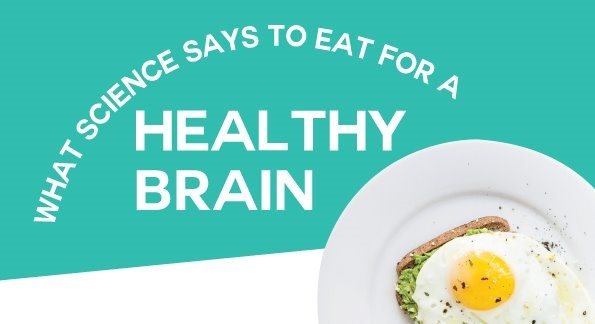Epinephrine and the Fight or Flight Response
By: Jessica Wilhelm, CN

Epinephrine, also known as adrenalin, is an excitatory neurotransmitter involved in the body's "fight or flight" response and regulates brain functions such as metabolism, heart rate, and blood pressure. It is made from norepinephrine and released from the adrenal glands (our stress response organs) when the body perceives an emergency or danger. If epinephrine had a personality it would motivated, driven, focused, and energetic. This neurotransmitter will often be elevated when hyperactivity, anxiety and sleep issues are present. Long-term over-stimulation from stressors can cause epinephrine levels to become depleted which can contribute to low energy, focus issues, and the inability to properly respond to stress.
Adrenal and Stress Connection
The ratio between norepinephrine and epinephrine provides an indirect view of how stress is affecting the body. Stressors may include (but not limited to) mental stressors such as worrying over finances, work, personal relationships, or physical stressors such as illness or over-training. The exchanges of neurotransmitters and hormones occurs in the presence of these stressors is commonly referred to as the “stress response.” When epinephrine is low, cortisol production from the adrenals may be insufficient, but can also indicate inflammation in the body due to increased homocysteine output. Elevated epinephrine is less common, but typically means intense physical exertion (such as over-training in sports) or the use of stimulants such as caffeine or medications that have a stimulant-like effect. Supporting the adrenals and reducing stress will help to improve the release of cortisol, norepi, and epi from the adrenal glands.
Epinephrine and the Methylation Link
Methylation is a type of biochemical reaction in the body involved in DNA/RNA synthesis and repair, heavy metal removal, and regulation of gene expression. It is imperative for optimal health and requires several nutrients including B-Vitamins such as folic acid and B-12, in addition to the amino acid methionine. Statistics show that 40-50% of the population have a genetic variation that inhibits the proper metabolism of folic acid which can cause a wide variety health concerns, but also contribute to the slow conversion of norepinephrine to epinephrine.
L-Methylfolate, the active, cell-ready form of folic acid helps the body carry out metabolic processes such as neurotransmitter and hormone production, red blood cell formation, but also plays a key role in cardiovascular and liver health, and reproductive functions. Common symptoms associated with the decreased ability to metabolize folic acid include low mood, headaches, poor focus and concentration, and sleep cycle disturbances.
For those who have the genetic inability to properly metabolize folic acid, taking a plain folic acid supplement or eating foods fortified foods with folic acid may not be effective, but may also result in a build-up of unmetabolized folic acid in the body. It has even been suggested that the folic acid could block the cellular uptake of L-methylfolate. Processed foods and low-quality multivitamin and/or B-Complex supplements are primary sources of synthetic folic acid that cannot be readily used by the body. Fruits and vegetables contain naturally occurring folate and professional-grade multivitamins and B-Complex supplements contain the active form of folic acid.
Methionine plays an important role in many functions related to both protein structure and metabolism but also supports the production of epinephrine. L-methionine’s primary metabolic function is in its conversion to S-Adenosyl Methionine (SAMe), an important methyl donor, which is required in the conversion of norepinephrine to epinephrine. SAMe supplies sulfur, which is required by the body for normal metabolism and growth. It promotes healthy hair, skin, and nails, can lower cholesterol, but also decrease fat build up in the liver. SAMe also serves as an antioxidant in the body and regulates the availability of folate, selenium and zinc.
L-methionine must be supplied by diet and/or supplementation as it cannot be synthesized by the body. It is found in foods such as meat, fish, shellfish, eggs, beans, seaweed, spirulina, sesame seeds, Brazil nuts, oats and sunflower seeds.
Support for Low epinephrine
Because epinephrine is produced from norepinephrine, consuming foods rich in dopamine precursors, but also utilizing key amino acids can boost epinephrine. The amino acids DL-Phenylalanine (DLPA) or Tyrosine can be taken in supplement form to increase the production of dopamine which in turn can promote norepinephrine and epinephrine production. Utilizing adrenal glandulars and/or adaptogenic herbs such as ginseng, cordyceps, and rhodiola support the healthy production of cortisol, as well as the catecholamines (dopamine, norepinephrine, epinephrine). To promote the slow conversion of norepinephrine which can cause low epinephrine consider a professional-grade multivitamin with the active form of folic acid and/or B-Complex. Be sure to eat a wide-variety of proteins sources to get methionine, however supplementation is also a consideration.
Support for elevated epinephrine
It is imperative to modulate excess epinephrine, because it puts stress on the calming neurotransmitters, serotonin and GABA, as they try to maintain balance. If epinephrine levels are elevated for a prolonged period of time, the body’s pools of serotonin and GABA can become depleted which will exacerbate mood, anxiety and cause sleep cycle disturbances. To calm the “fight or flight” response of elevated epinephrine the amino acid Taurine or Phosphatidylserine are helpful. Avoiding stimulants such as caffeine (coffee, energy drinks, etc.), guarana and kola nut is also key because they can raise epinephrine levels which can increase anxiety and contribute to trouble sleeping.
Curious about your level of epinephrine? Wellnicity's My Brain Balance test measures this along with six other key neurotransmitters.